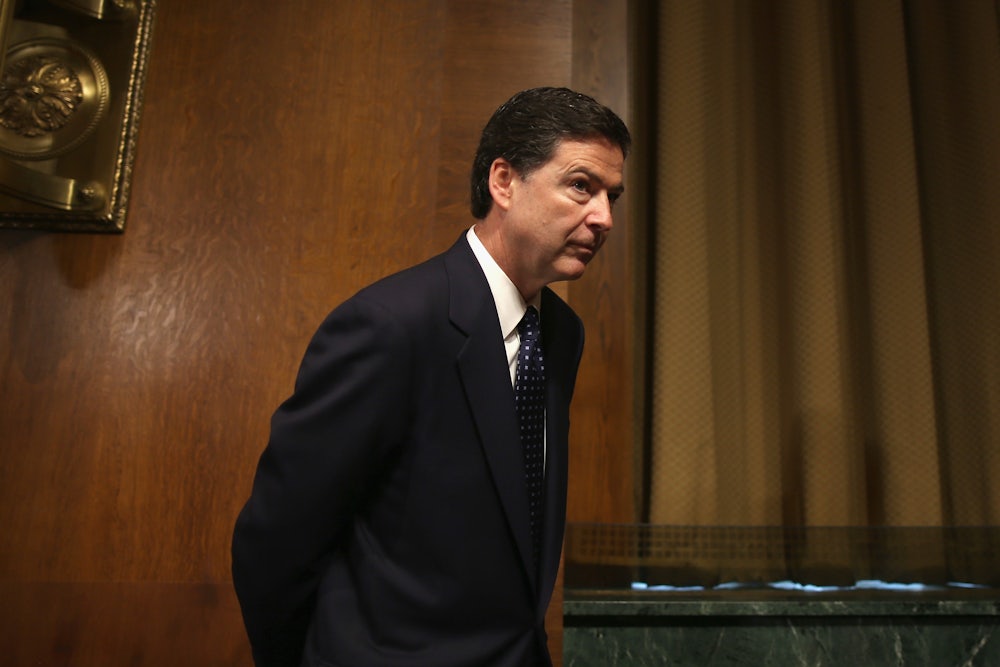In my longer assessment of the fired FBI director’s opening statement, and in response to those taking solace in the fact that Comey did in some sense assure President Donald Trump on three occasions that he was not under investigation, I concluded: “If he was not under investigation before he fired Comey, it is imperative that he be so now.”
But as I alluded to at the end of the article, the latest date we can believe with any confidence Trump wasn’t personally under investigation was March 30, nearly six weeks before Trump fired him. That’s the day Trump phoned Comey to complain about the “cloud” of the Russia investigation and whine about the fact that Comey had testified about Russia a few days earlier. Comey testifies:
I explained that we had briefed the leadership of Congress on exactly which individuals we were investigating and that we had told those Congressional leaders that we were not personally investigating President Trump. I reminded him I had previously told him that. He repeatedly told me, “We need to get that fact out.” (I did not tell the President that the FBI and the Department of Justice had been reluctant to make public statements that we did not have an open case on President Trump for a number of reasons, most importantly because it would create a duty to correct, should that change.)
Emphases mine.
So Trump probably wasn’t under investigation at that point. And Comey rightly made no public declarations about who was or was not under investigation from that point through his firing. But all of this raises the question of whether Trump’s status changed between late March and early May, and, if so, whether Comey, from the relaxed standards of private life, will feel an obligation—a “duty”—to provide a status update to the Senate Intelligence Committee in his testimony this morning.
My strong suspicion for a number of reasons is that he will not. The investigation, of course, continues in his absence. He didn’t incur what he called “the duty” before he was fired, and only spoke to Trump’s place in the investigation after he was fired (and after Trump made assertions about what Comey told him privately). So I imagine he will decline to address the question one way or another, out of fealty to the investigation.
The only possible hope for good news for Trump (and it wouldn’t be much good news at all) would be if Comey affirmed that Trump remained outside the immediate scope of the investigation as of May 9, when he terminated Comey’s employment.
But Comey also has his own personal myth to attend to. Just as he felt a duty to update Congress about the changing status of the Clinton-email investigation, he may feel obliged to update the public once more. Trump obliged him to comment on the three assurances, and having detailed those assurances, he might also feel compelled to respond to a question about whether Trump was the subject of an investigation by the time he left the FBI. Very unlikely. But he might. And the answer might be “yes.”
